Online merchants are competing for customer attention and loyalty in an Internet landscape where people create their autobiographies across social networks and businesses have to discover a reason to be relevant in that narrative.
Blogging, which some suggest is a waning art for individuals, can be a publishing platform for savvy online stores that create content to better engage potential shoppers and build a relationship with them.
Ecommerce-related blogs can focus on product information, how-to demonstrations, or even social topics. Examples of good ecommerce blogs include REI and Toms.
For businesses that want to blog there are at least two challenges — what to write and how to present the content that is written. This article focuses on the latter. What you’ll find here is my list of the ten best blogging platforms available in 2011.
WordPress
WordPress is a free, open-source blogging platform that has grown into a full-fledged content management system. It enjoys enormous community support.

WordPress offers a hosted and a licensed version.
Blogger
Google owns Blogger and has it integrated with Google Accounts. The platform has been around since blogging’s beginnings, and is still an excellent choice.

Blogger is Google’s free, hosted blogging platform.
Tumblr
Tumblr is one of the fastest growing blogging platforms in 2011. It has a love-hate relationship — it would seem — with the fashion industry, but is an excellent choice for any ecommerce merchant.

Tumblr is a rising star among blogging platforms.
Movable Type
Perhaps even more venerated than Blogger, Movable Type was very popular in the early part of the blogging movement, and it has been reemerging in 2011.
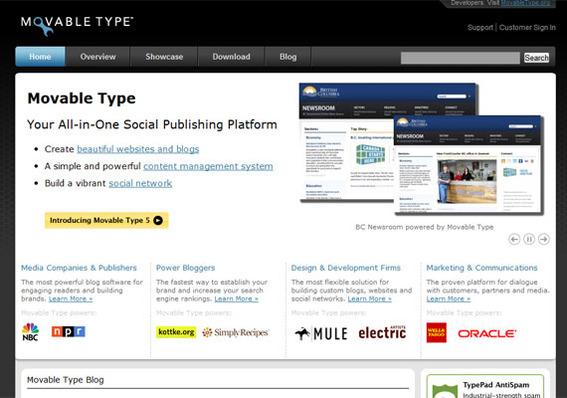
Moveable Type is a powerful publishing platform.
Expression Engine
Expression Engine is a licensed and paid blogging and content platform that integrates will with several ecommerce platforms.

Expression Engine works will with ecommerce platforms like Magento.
Squarespace
Squarespace offers a good blogging platform that does not require a lot of technical expertise.
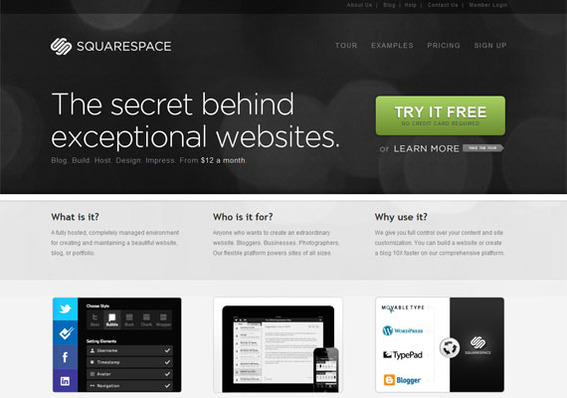
Squarespace is a good platform for blog authors will little technical expertise.
TypePad
TypePad is a very functional blogging platform that is relatively easy to set up and post to. It is a very solid choice for beginning bloggers.

TypePad is very easy to use.
Posterous Spaces
Posterous has recently reinvented itself, introducing a concept it calls spaces. The idea is to offer more control over how content is shared. In some ways this makes Posterous as much a social network as a platform.
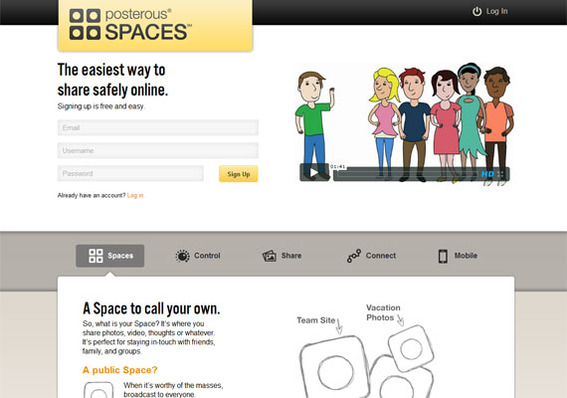
Posterous Spaces gives you control over how content is shared.
Compendium Blogware
Compendium specializes in business blogging and giving marketers control over the message.
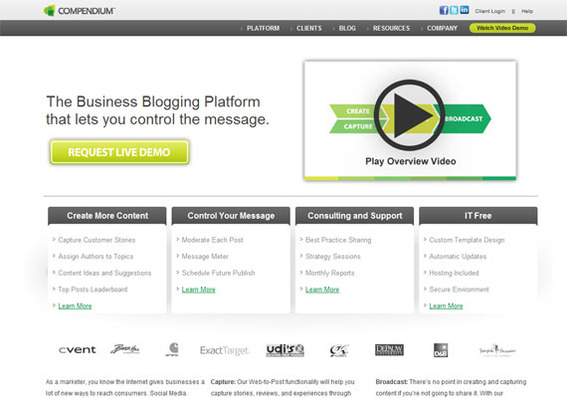
Compendium is one of the few blogging platforms that focuses on marketing.
Drupal
Drupal is a proper content management system that has many excellent features for blogging. It works especially well for organizations where many of the blog authors are not technically skilled.
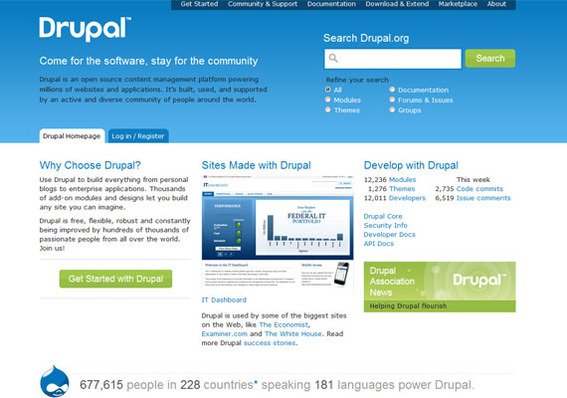
Drupal has excellent features for authors that are technical novices.




